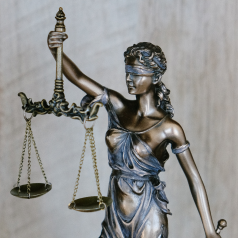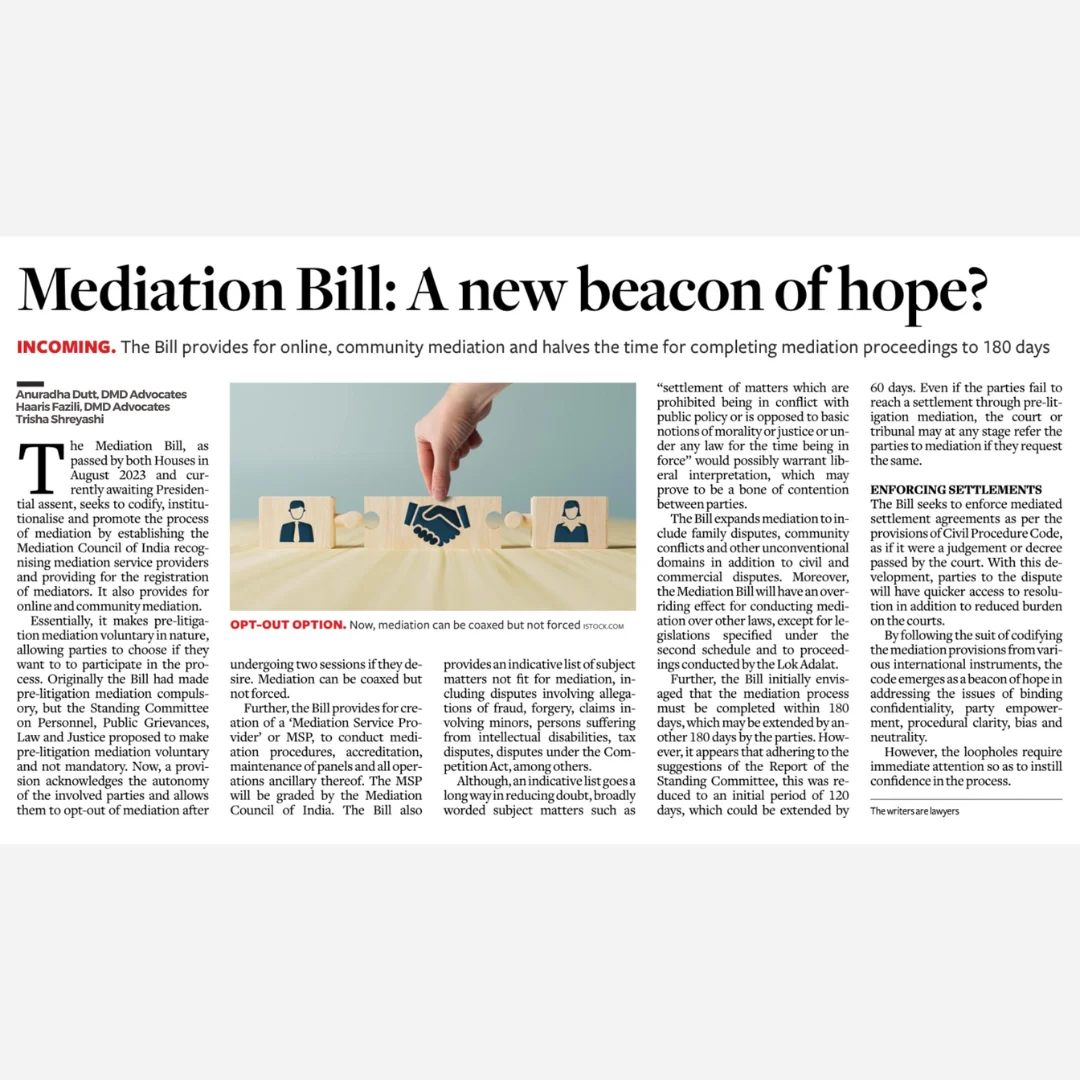The present Collegium System lacks transparency, accountability and objectivity. The trust deficit has affected the credibility of the Collegium System, as sometimes observed by the civic society. Quite often, very serious allegations, and many a time not unfounded too, have been raised that its approach has been highly subjective. Deserving persons have been ignored for wholly subjective reasons. Social and other national realities were overlooked; certain appointments were purposely delayed so as either to benefit vested choices or to deny such benefits to the less patronised; selection of patronized or favoured persons were made in blatant violation of the guidelines resulting in unmerited, if not bad, appointments; the dictatorial attitude of the Collegium seriously affecting the self-respect and dignity, if not independence of Judges; the Court, particularly the Supreme Court, often being styled as the Court of the Collegium; the looking forward syndrome affecting impartial assessment, etc. , have been some of the other allegations in the air for quite some time.
The above harsh words of criticism of the Collegium System aren’t mine – they are merely an extraction from the opinion of Kurian Joseph J., one of the Judges who struck down the Constitution (Ninety-ninth Amendment) Act, 2014, in Supreme Court Advocates-on Record Association v. Union of India (“NJAC case”) [(2016) 5 SCC 1, at p.689, para 990]. Therefore, said he, “the Collegium System needs to be improved, requiring a ‘glasnost’ and a ‘perestroika’, and hence the case needs to be heard further in this regard” (NJAC case, at p.689, para 991). Madan Lokur J. held that “the procedure for appointment of judges as laid down in these decisions read with the (Revised) Memorandum of Procedure definitely needs fine-tuning”, and directed that the petitions be allowed but listed for a “consequence hearing” on an appropriate date (NJAC case, at pp.681-682, para 969). Adarsh Kumar Goel J. referred to the grievances (even of the petitioners), regarding the “functioning in practice”, expressed about the Collegium System, and directed that “the matter be listed for consideration of the surviving issue of grievances as to the working of the pre-existing system” (NJAC case, at p.740, paras 1111-1112). Written suggestions aggregating to approximately 11,500 pages were received and, accepting the suggestion of the Learned Attorney General, it was directed (by Order dated 16 December 2015, NJAC case, at pp.803-807) that the Government of India may finalize the existing Memorandum of Procedure by supplementing it in consultation with the Chief Justice of India, who would base his decision on the unanimous view of the Collegium comprising the four senior most puisne judges of the Supreme Court, taking into account certain specified factors. This resulted in revision of the Memorandum of Procedure in August 2021.
Notwithstanding the above, the Indian judiciary is today facing a trial-by-fire. The alleged discovery of large amounts of cash at the residence of a Judge of the Delhi High Court has plunged the judiciary into crisis, and it faces a watershed moment. The initial reaction of the present Chief Justice of India (“CJI”) has been promising – prompt initiation of an inquiry and an attempt at transparency not seen before. But can this be viewed as an isolated case of a potential ‘bad apple’, or have the following words of the Supreme Court in the Second Judges case [(1993) 4 SCC 441] come back to haunt the Court:
“Regrettably, there are some intractable problems concerned with judicial administration starting from the initial stage of selection of candidates to man the Supreme Court and the High Courts leading to the present malaise. Therefore, it has become inevitable that effective steps have to be taken to improve or retrieve the situation. After taking note of these problems and realizing the devastating consequences that may flow, one cannot be a silent spectator or an old inveterate optimist…” (NJAC case, at p.683, para 973).
There is today a fairly widespread perception that “justice” is now purchasable in India. This perception is being deliberately fuelled by vested interests, including “lawyers”, who claim that they can close the “transaction”. As the perception takes root, increasingly clients are chasing these “lawyers” who claim they can ensure a favourable outcome. The victims of the “present malaise” are the large number of honest Judges and honest lawyers who believe that matters must be decided on their merits and in accordance with law.
There can be no doubt that independence of the judiciary is part of the basic structure of the Constitution, and that the appointment of judges to the Supreme Court and the High Courts forms an integral part of the independence of the judiciary (NJAC case, at p.683, para 973). However, it does not automatically follow that primacy of the judiciary in the matter of appointment of Judges of the Supreme Court and the High Courts is part of the basic structure of the Constitution. Such primacy cannot be regarded as the sine qua non for ensuring an independent judiciary without wiping out all decisions and precedents of the Supreme Court and High Courts prior to the Second Judges case as flawed and compromised.
Further, it would appear that maintenance of the independence of the judiciary is not the sole responsibility or prerogative of the judiciary itself. This is confirmed by the observation of Kurian Joseph J. that “the fault is not wholly of the Collegium. The active silence of the Executive in not preventing such unworthy appointments was actually one of the major problems. The Second and Third Judges cases had provided effective tools in the hands of the Executive to prevent such aberrations” (NJAC case, at p.689, para 991). Recognizing the role of the Bar, at a recent lecture organised by the Pune Bar Association, Ujjal Bhuyan J. emphasized the need for the Bar to remain vigilant because the independence of the judiciary is non-negotiable. In this regard, the Bombay Bar Association, under the leadership of Sr. Advocate Iqbal Chagla, played a formidable role in dealing with errant Judges and upholding the integrity and independence of the Bombay High Court.
The attempts, from time-to-time, by the judiciary to proclaim themselves sole guardians of the independence and integrity of the judiciary has contributed to the current situation. Too-readily wielding the heavy weapon of contempt to silence criticism has only emboldened the wayward few. By misuse of the contempt jurisdiction, the judiciary should not become the “imperium in impero” that members of the Constituent Assembly apprehended, and made clear that they did not want to create (NJAC case, at pp.251-252, paras 41-42). In a recent speech, Abhay Oka J. urged the judiciary not to be too sensitive but to take criticism in its stride, and to look into it to find out if the judiciary is going wrong somewhere and try and take corrective measures. In this regard, I would also commend the standard held applicable when an offence under Section 196 of the BNS is alleged – “the effect of the spoken or written words will have to be considered based on standards of reasonable, strong-minded, firm and courageous individuals and not based on the standards of people with weak and oscillating minds. The effect of the spoken or written words cannot be judged on the basis of the standards of people who always have a sense of insecurity or of those who always perceive criticism as a threat to their power or position” [See, Imran Pratapgadhi v. State of Gujarat – 2025 INSC 410]. There can be no tenable reason to presume that Judges are not “reasonable, strong-minded, firm and courageous individuals”. It is also high time that honest, reasonable, strong-minded, firm and courageous Judges spoke out against perversions of the independence of the judiciary, whether by way of corruption or over-ambition on the part of other Judges.
In today’s situation, decisive action is necessary to preserve and protect the independence and the integrity of the judiciary. Even Constitutional amendments should not be ruled out as an option, so long as the basic structure of the Constitution remains unaffected. H.R. Khanna J. highlighted the peril of Constitutional rigidity, stating that “If no provision were made for the amendment of the Constitution, the people would be left with no remedy or means for adapting it to the changing need of times and would per force have recourse to extra-constitutional methods of changing the Constitution.” [Kesavananda Bharati v. State of Kerala – (1973) 4 SCC 225, at p. 750, para 1383-A].
H.R. Khanna J. went on to shine brighter than a diamond in his unforgettable dissent in the Habeas Corpus case [(1976) 2 SCC 521]. The timing of the present watershed moment for the Indian judiciary may well have been orchestrated by divine intervention. The present CJI need not look back too far for all the inspiration he could possibly need. As a firm believer that the independence and integrity of the Indian judiciary is the sine qua non for the survival of democracy and the rule of law in our great nation, it is my fervent hope and prayer that the CJI will do whatever is necessary to punish the errant (Judges and facilitators), without fear or favour, and to remedy the present systemic malaise.
Author: Lynn Pereira, Partner, DMD Advocates
















